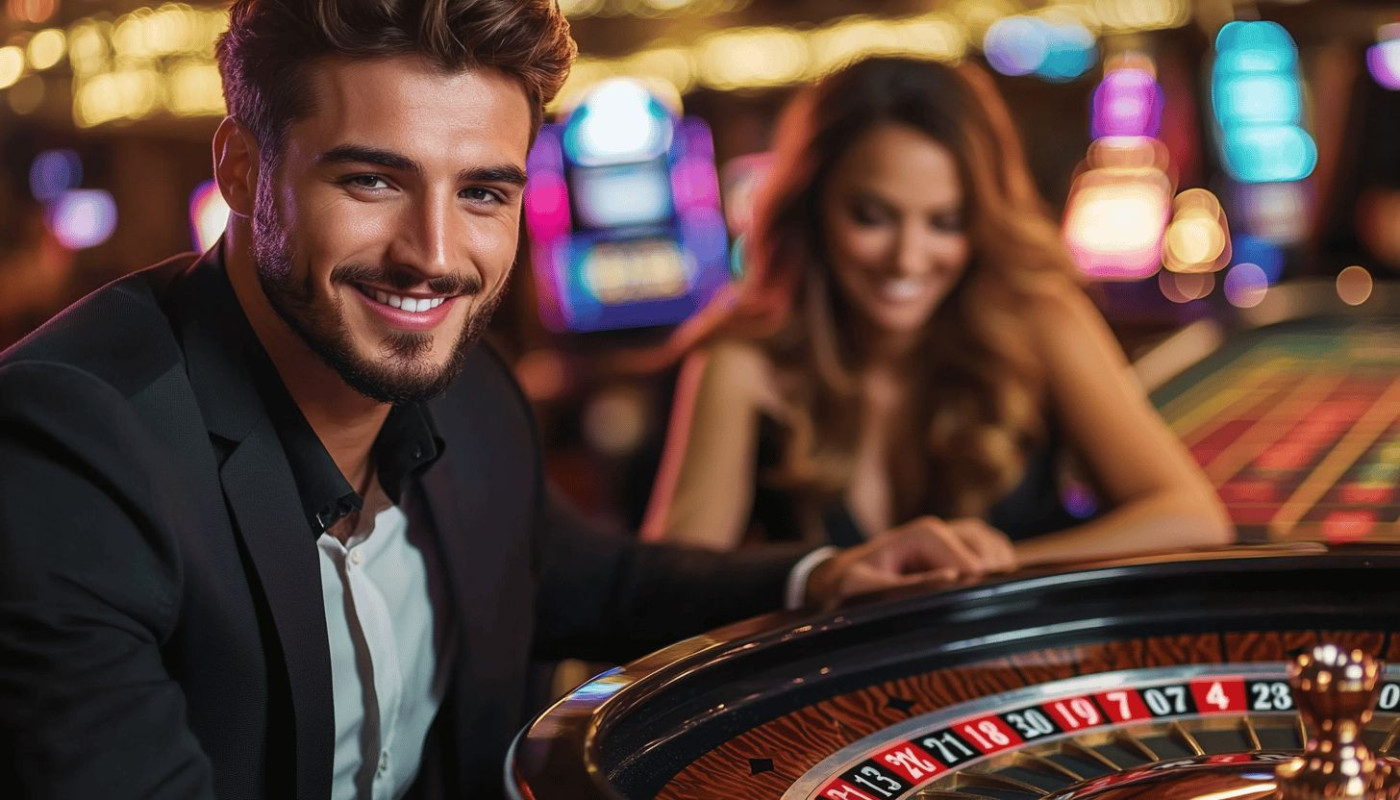Table of contents
Delve into the enigmatic world of those who dare to wager against the odds, seeking thrills, escapades, and sometimes fortune. The psychology of gamblers is a rich tapestry, intricately woven with threads of risk, reward, and the mystery of chance. What compels an individual to place their stakes on the unpredictable outcome of a game? This subject beckons with promises of uncovering the motivations, the thrills, and the often unspoken realities that reside within a gambler's mind. So, embark on this journey to explore the cognitive processes and emotional rollercoasters that characterize the gambling experience. Whether you're a seasoned player or an intrigued onlooker, this exploration offers fascinating insights into the complex human psyche. Prepare to be intrigued, enlightened, and perhaps even a little surprised by the revelations that await in the following paragraphs.
The psychological allure of gambling
The attraction of gambling stems from a complex interplay of psychological factors that captivate many individuals. The thrill of risk-taking is a primary component, as it activates the brain's reward system, providing a rush of dopamine that can be as intoxicating as the potential monetary gains. This gambling excitement, a blend of adrenaline and anticipation, taps into our innate desire for adventure and the unknown. Another aspect is the psychological allure of gambling which, through behavioral psychology, can be understood as the human tendency to seek activities that stimulate curiosity and provide a sense of achievement. Furthermore, the concept of intermittent reinforcement plays a pivotal role in the gambler's mind. This phenomenon, where random payouts occur, fuels the drive to continue gambling, as each succeeding bet holds the promise of another unpredictable, yet potentially rewarding, outcome. The uncertainty of each wager, paired with the intermittent reinforcement, creates a compelling loop of engagement, undoubtedly contributing to the gambling allure felt by many.
Understanding the Gambler's Fallacy
In the realm of betting behavior, a prevalent cognitive distortion that often misleads players is known as the gambler's fallacy. This erroneous belief hinges on the notion that past events in games of chance have a bearing on what will happen next. Despite the fact that each event in games like roulette or dice is independent, many gamblers fall prey to this predictive fallacy. They cling to the belief that if a roulette ball has landed on red five times in a row, then surely, black is due to come up next. Yet, this is a classic case of mistaking non-random patterns for genuine predictability.
From the perspective of probability theory, which forms the backbone of understanding random outcomes in gambling, the likelihood of a particular event does not increase just because it has not occurred in a while. The odds remain constant from one turn to the next, irrespective of previous results. The gambler's fallacy is a testament to how human intuition can often be at odds with mathematical truths, leading gamblers to make decisions that defy logical probability. Recognizing and overcoming this cognitive distortion is paramount for anyone seeking a rational approach to gambling.
The Impact of Social Factors on Gambling
Gambling is not merely a solitary activity; it's deeply intertwined with the social fabric that surrounds an individual. The phenomenon of social gambling epitomizes how communal interactions can dramatically sway one's gambling habits. Within gambling environments, the camaraderie and the collective excitement can bolster an individual's inclination to participate, often underpinned by the concept of social facilitation. This psychological term suggests that the mere presence of others can heighten our innate responses to perform certain actions—in this case, gambling. Moreover, peer pressure plays a pivotal role. The desire to fit in or to match the bets of friends can drive one to gamble beyond their comfort zone. These social dynamics are complemented by community influence, where local norms and success stories can glamorize and perpetuate gambling behavior. With stakes high and spirits contagious, the gambling environment becomes a hotbed for social reinforcement, where each cheer and commiseration shared among bettors can validate and encourage placing yet another wager. The impact of these intricate social webs cannot be understated; they can shape a gambler's mind, for better or worse.
The Role of Cognitive Biases in Gambling Decisions
When delving into the psychology behind gambling behaviors, one cannot overlook the significant impact of cognitive biases on a gambler's decision-making process. Cognitive biases, the systematic patterns of deviation from norm or rationality in judgment, play a substantial role in shaping gambling perception. Many gamblers fall prey to overconfidence in gambling, where they hold an inflated belief in their ability to influence the outcome of a game, which may lead them to take greater risks. This overestimation of one's gambling prowess is often fueled by small wins, leading individuals to believe they have a strategy or skill that gives them an edge.
The illusion of control is another psychological trap that can ensnare gamblers. This phenomenon occurs when individuals believe they can exert influence over outcomes that are, in reality, largely or entirely random. For instance, a person may think that the way they throw dice or choose lottery numbers can change the game's outcome, despite the evident lack of control over the probabilistic nature of these activities. Additionally, confirmation bias serves to reinforce a gambler's existing beliefs or hypotheses, disregarding evidence that contradicts them. Gamblers may remember their wins vividly but selectively forget their losses, perpetuating a skewed perception of their gambling success.
These cognitive biases are often rooted in heuristics, the mental shortcuts that humans use to simplify decision-making. While heuristics are helpful in many aspects of life, they can lead to miscalculations and erroneous judgments within the context of gambling. Recognizing and understanding these biases is vital for those seeking to comprehend the complex psychological landscape of gamblers and the influence of cognitive distortions on their behavior. Acknowledging the power these biases hold can not only enhance our grasp on the psychology of gambling but also inform strategies for promoting responsible gambling practices.
Coping Mechanisms and Problem Gambling
Individuals who engage in gambling often develop a variety of coping strategies to manage the outcomes of their activity. Positively, some may employ loss management strategies, setting limits for themselves both in terms of time and money spent gambling. However, there is also a darker side to how individuals cope with gambling. These negative mechanisms can include chasing losses, which is the act of continuing to gamble in an effort to recoup previous losses, a behavior that can quickly spiral into problem gambling behaviors. The allure of a potential win can overshadow the reality of continuous losses, leading to a cycle of increased gambling frequency and higher stakes.
Such negative coping strategies can pave the way to a gambling addiction, which is characterized by a compulsive need to gamble despite harmful negative consequences or a desire to stop. This addiction is often accompanied by psychological distress, as the highs of wins and the lows of losses create an emotional rollercoaster that can lead to anxiety, depression, and even suicidal thoughts. The emotional impact of gambling can be profound, and coping with gambling becomes not just a matter of financial loss, but also of maintaining mental health.
In addressing these challenges, cognitive-behavioral therapy has proven to be a valuable treatment approach for problem gambling. This therapeutic intervention helps individuals to identify and modify unhealthy gambling behaviors and thought patterns, enabling them to develop healthier coping mechanisms. By focusing on the psychological triggers that lead to compulsive gambling, cognitive-behavioral therapy assists in breaking the cycle of addiction and the associated psychological distress, guiding individuals towards recovery and a more balanced approach to handling the inevitable losses that come with gambling.
Similar

Exploring Classic Slot Themes And Their Modern Twists

Exploring The Legality And Security Of Online Casinos?

Essential Features Every Online Casino Platform Should Have

How To Recognize And Choose Safe International Online Casinos?

Mastering Carrot Collection In Online Crash Games

Enhancing User Experience With Effective Online Casino Customer Support

How Seamless Access To Gaming Platforms Enhances User Experience?

Exploring The Latest Trends In Sustainable Fashion And Living

The Benefits Of Integrating Live Updates In Daily Travel Routines

